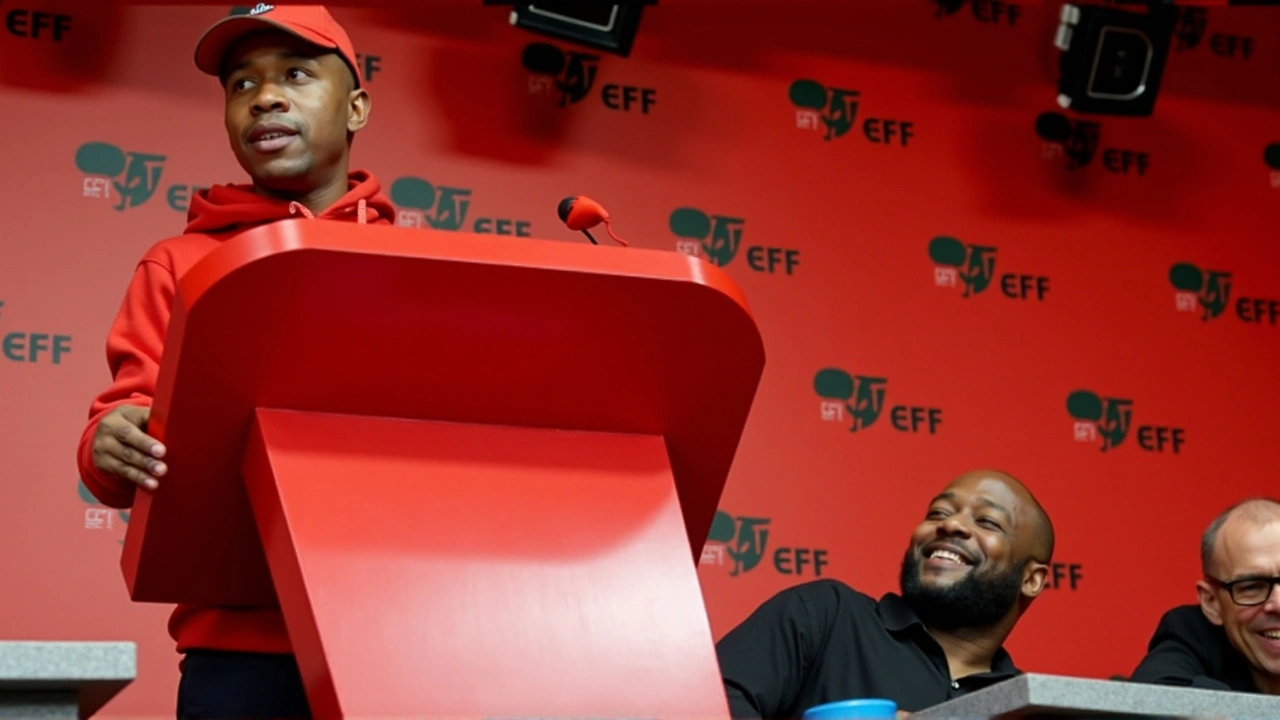Julius Malema never shies away from the spotlight, especially when it comes to controversial topics like land ownership and game farming in South Africa. If you care about wildlife, farming, or the future of African land, you can’t ignore his impact. His statements and political moves often spark heated debates about land reform and how wildlife resources should be managed.
Malema has pushed hard for land redistribution, and this hits home for anyone involved with game farms. Many farm owners feel uncertain every time he calls for changes in how land is owned and used. At the same time, he’s tapped into real frustrations among those who’ve wanted a piece of the land for years. Whether you agree with him or not, he’s forced people to talk openly about who owns Africa’s rich wildlife and the parks that attract tourists and fuel local economies.
For game farm operators, his influence goes beyond politics. Every speech and every rally makes investors and farm managers rethink their future. Some worry about property rights. Others see opportunity for community-based tourism or new conservation projects if land reform is done right. Malema’s voice is a big reason why these conversations are happening at kitchen tables and in parliament alike.
Conservationists have mixed opinions on his approach. Some fear rapid land redistribution could threaten wildlife if not handled carefully. Successful game farms rely on long-term planning, reliable ownership, and big investments in anti-poaching and habitat renewal. If rules change overnight, that’s all thrown up in the air. On the flip side, opening up new ownership models could make conservation feel less exclusive and more relevant to local people.
The link between politics and conservation is complicated, and Malema sits right at the middle of it in South Africa. His Energy and influence stretch from parliament to rural communities and the international media. Whenever he speaks, you see a surge in visits and questions from people wanting straight answers: what happens next for game farms, and will policy changes really help the average person?
It’s not just theory, either. There have been real protests, policy drafts, and even votes that shifted because of his comments. Investors sometimes pause development plans until they’re sure what reforms will mean. Workers and families who depend on game farm jobs keep a close ear to Malema’s latest stance, knowing their livelihoods are tied to government decisions.
So if you want to keep up with African game farms, pay attention to Julius Malema. No other political figure has shaken the status quo quite like him. Whether today’s news is about a bold speech or a quiet legislative move, you’ll feel the effects ripple out through rural Africa, game parks, and even international tourism. This space isn’t just about animals or land—it’s about the people steering the future, and Malema is right at the wheel.

In a surprising turn of events, Floyd Shivambu has resigned from the Economic Freedom Fighters (EFF), a party he helped co-found. EFF president Julius Malema expressed his deep regret over Shivambu's departure. The resignation followed a fallout related to Shivambu's ambition to contest for the party's presidency, marking a significant shift in South Africa's political dynamics. Shivambu is now aligning with the MK Party, a move seen as a strategic effort to challenge the political status quo and bolster progressive forces.
Read More >>